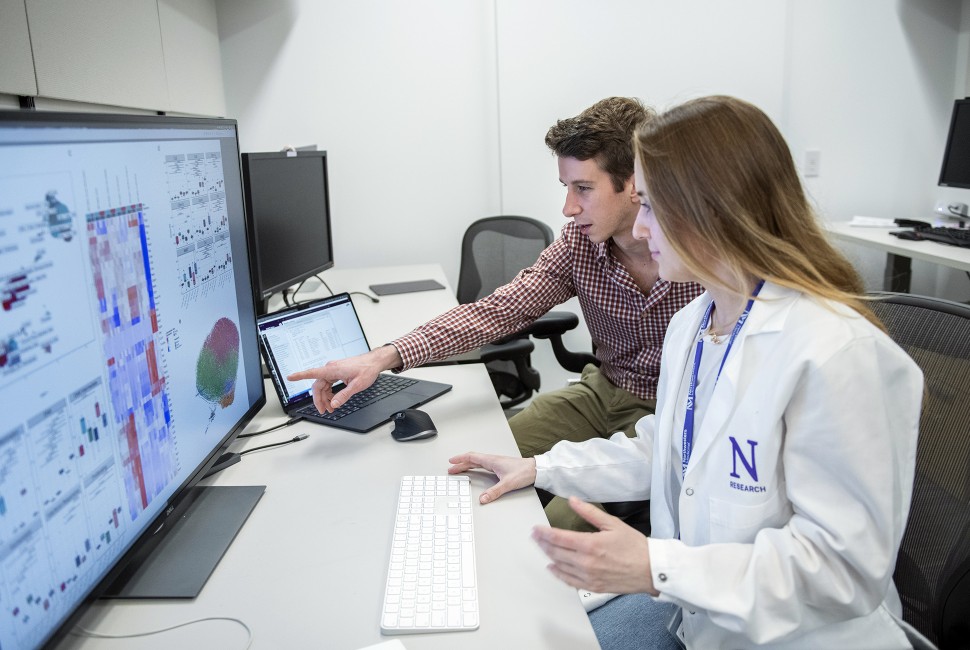Northwestern researcher Rogan Grant has been selected as a 2024 Schmidt Science Fellow.
The Schmidt Fellows Program sponsors promising, emerging scientists with post-doctoral placement in internationally renowned labs where their research will be an academic pivot from their Ph.D. topic. The program thereby promotes an intersectional approach to addressing global challenges like climate destruction and food insecurity and bolstering efforts to improve mental health, energy security and more.
“Rogan’s philosophical disposition infuses his path-breaking science,” said Elizabeth Lewis Pardoe, director of the Office of Fellowships. “He reaches beyond the baseline of survival to grasp the nuances of patient experience. Such insights deepen Rogan’s understanding of how a disease progresses — and how to stop it.”
Early in his education, Grant became fascinated by the way molecules can collide to create a working organ or even a consciousness. With this interest in mind, he studied biology as an undergraduate student at Haverford College, then obtained his Ph.D. in neuroscience at Northwestern.
During his Ph.D. studies, Grant’s neuroscience interest took a turn into systems biology, as he began to explore the connections between the brain and the lungs, focusing on how infections of the lung, including COVID-19, can increase a patient’s likelihood of neurodegenerative diseases like dementia.
He describes his doctoral work as “biological data science,” which he used to develop hypotheses about the mechanisms that drive damage to the lung after pneumonia. As a Schmidt Fellow, Grant will shift his work to understanding how understanding the molecular side of medicine can help combat disease. He plans to mechanistically study how immune system dysfunction can act on the brain and cause cognitive decline or a neurodegenerative disease to develop.
“This fellowship gives me support to learn new methods, to develop a new skill set and a new way of thinking in a new context,” Grant said. “I'm leaving the command line and focusing on the bench again.”
Grant’s ultimate goal is to find individual areas that can eventually be targeted with drugs to delay or prevent the development of dementia, which he sees as one of medicine’s greatest unmet needs.
Along with a $110,000 stipend for living expenses, Schmidt Science Fellows receive intentional mentorship opportunities, a life-long community and connections to a far-reaching network of global leaders in the sciences. The program is a philanthropic initiative of Eric and Wendy Schmidt, delivered in partnership with the Rhodes Trust.
This year’s cohort includes 32 early-career researchers. Since the program began in 2018, Schmidt Science Fellows has supported 177 Fellows, nominated by 62 institutes across the globe.
Students interested in learning more about the Schmidt Science Fellowship should contact Northwestern’s Office of Fellowships.


